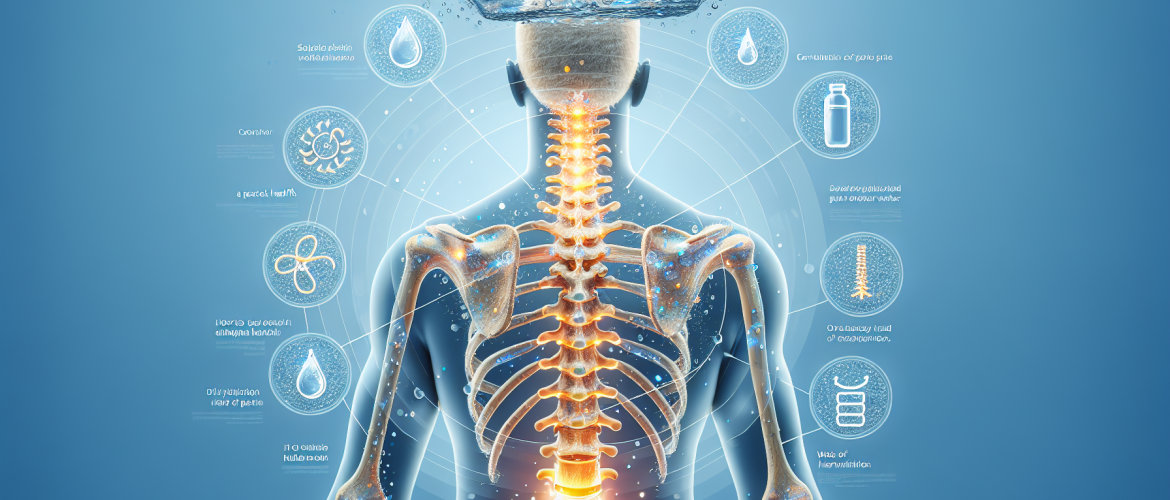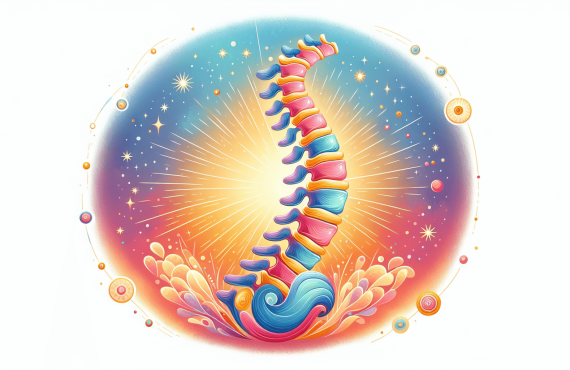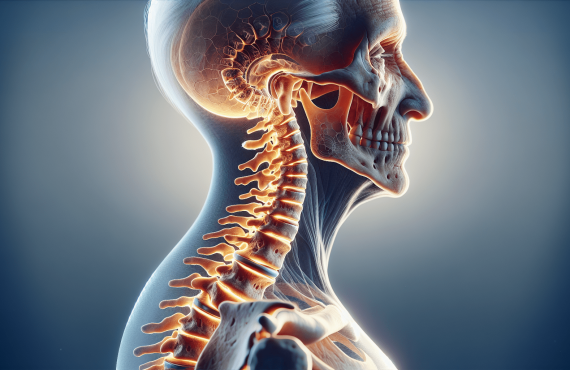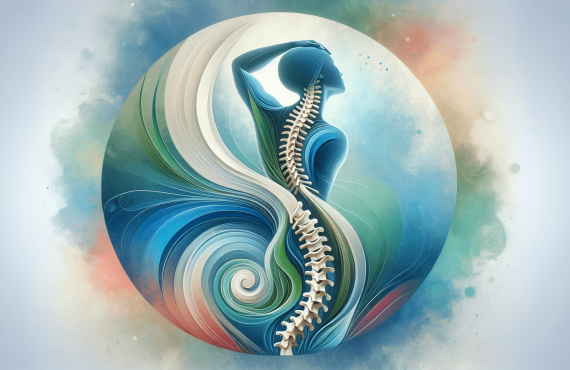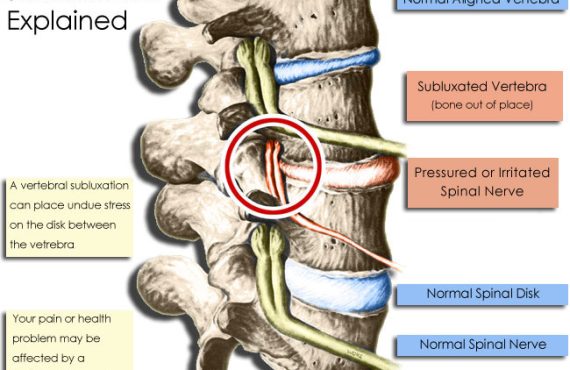In order to maintain optimal spinal health, hydration plays a crucial role. The spine is made up of discs that act as shock absorbers and keep the spine flexible. These discs are composed of a large percentage of water, and when the body becomes dehydrated, these discs can become less pliable and more prone to injury. Additionally, proper hydration helps to lubricate the joints, allowing for smooth movement and reducing the risk of stiffness and discomfort. Therefore, staying hydrated is essential for maintaining a healthy spine and overall well-being. If you are experiencing any issues with back or neck pain, or simply want to improve your daily comfort and mobility, consider seeking chiropractic care from experienced professionals such as Dr. Craig Henry and Dr. Aaron Hixon at Henry Chiropractic in Pensacola, Florida.
Table of Contents
I. Understanding the Spine
The spine is a crucial component of our bodies, providing support and stability. It is made up of a series of bones called vertebrae, which are stacked on top of one another. These vertebrae are connected by joints and cushioned by intervertebral discs, allowing for movement and flexibility. The spine is divided into different regions, including the cervical (neck), thoracic (mid-back), lumbar (lower back), sacral, and coccygeal regions.
A. The structure of the spine
The spine consists of 33 individual vertebrae, each with a specific shape and function. The cervical region, located in the neck, consists of 7 vertebrae. The thoracic region, found in the mid-back, is comprised of 12 vertebrae. The lumbar region, located in the lower back, includes 5 vertebrae. Below the lumbar region are the sacral vertebrae, which are fused together to form the sacrum. Finally, the coccygeal region consists of the coccyx, commonly known as the tailbone.
B. The functions of the spine
The spine serves several important functions in the body. Firstly, it provides support and stability, allowing us to maintain an upright posture. It also protects the spinal cord, a vital part of the central nervous system that transmits signals between the brain and the rest of the body. Additionally, the spine allows for movement and flexibility, enabling us to perform various activities and tasks.
C. Common spinal health issues
Like any other part of the body, the spine is susceptible to various health issues. Some common spinal conditions include herniated discs, degenerative disc disease, spinal stenosis, and sciatica. Poor posture, sedentary lifestyle, aging, and improper lifting techniques can contribute to the development of these conditions. It is important to take care of our spines and maintain good spinal health to prevent these issues from occurring.
II. The Role of Hydration in Spinal Health
Proper hydration plays a crucial role in maintaining overall health, including the health of our spines. Staying hydrated ensures that our bodies function optimally, allowing for proper circulation, digestion, and lubrication of joints. When it comes to spinal health, hydration is particularly important for maintaining the health and integrity of the intervertebral discs.
A. Importance of hydration for overall health
Water is essential for the overall functioning of our bodies. It helps regulate body temperature, transport nutrients and oxygen to cells, flush out waste and toxins, and support various bodily functions. Dehydration can lead to numerous health problems, including fatigue, headaches, muscle cramps, and impaired cognitive function. By staying properly hydrated, you can promote overall well-being and improve your body’s ability to function.
B. The connection between hydration and spinal discs
Spinal discs, located between each vertebra, act as shock absorbers and provide cushioning for the spine. These discs are composed mainly of water, making hydration vital for their optimal function. When the body is well-hydrated, the discs are adequately hydrated, maintaining their height and flexibility. On the other hand, dehydration can cause the discs to lose water content, leading to issues such as decreased disc height and increased risk of injury.
C. How dehydration affects spinal health
When the body is dehydrated, the intervertebral discs lose water content, causing them to become compressed and lose their ability to absorb shock effectively. This can lead to a decrease in disc height, reducing the space between vertebrae and potentially putting pressure on nearby nerves. Dehydration can also result in reduced flexibility and range of motion, making movements more challenging and increasing the risk of injury.
D. Benefits of proper hydration for the spine
Maintaining proper hydration levels can have significant benefits for spinal health. By staying hydrated, you can help ensure that your spinal discs remain well-nourished and hydrated, promoting their ability to absorb shock and maintain their height. Adequate hydration also supports the overall health and function of the spinal column, reducing the risk of spinal conditions and improving mobility and flexibility.

III. The Effects of Dehydration on the Spine
Dehydration can have detrimental effects on the spine, potentially leading to various issues and conditions. It is essential to understand how dehydration can impact spinal health to take appropriate measures to stay hydrated.
A. Loss of spinal disc height
When the body is dehydrated, the intervertebral discs lose water content, causing them to shrink and decrease in height. This can lead to a reduction in disc space, potentially putting pressure on the nerves in the spine. Loss of disc height may contribute to conditions such as bulging discs, herniated discs, and spinal stenosis.
B. Reduced flexibility and range of motion
Proper hydration is necessary for maintaining the flexibility and range of motion of the spine. Dehydration can lead to stiffness and decreased mobility, making it more challenging to perform everyday activities. Reduced flexibility in the spine can also increase the risk of injury, as the body may struggle to move properly and absorb impact.
C. Increased risk of disc herniation
Dehydration can weaken the intervertebral discs, making them more susceptible to injury and damage. When the discs lose water content, they become less elastic and more prone to tear or rupture. This increases the risk of disc herniation, where the inner gel-like material of the disc protrudes through a tear in the disc’s outer layer, potentially compressing nearby nerves and causing pain and discomfort.
D. Accelerated degeneration of spinal discs
Inadequate hydration can accelerate the degeneration of spinal discs, leading to conditions such as degenerative disc disease. Dehydration causes the discs to lose their ability to absorb shock effectively and distribute pressure evenly. This can result in premature wear and tear of the discs, leading to pain, stiffness, and reduced spinal function.
It is important to note that dehydration is not the sole cause of spinal health issues, but it can contribute to their development and exacerbate existing conditions.
IV. Strategies for Maintaining Hydration
To maintain proper hydration and support spinal health, it is essential to adopt strategies that promote adequate water intake.
A. Drinking an adequate amount of water
The most straightforward and effective way to stay hydrated is to drink an adequate amount of water throughout the day. The recommended daily intake varies depending on factors such as age, sex, activity level, and climate. Generally, it is recommended to drink at least 8 cups (64 ounces) of water per day. However, individual needs may vary, so it is essential to listen to your body and adjust your water intake accordingly.
B. Benefits of consuming electrolytes
In addition to water, consuming electrolytes can help maintain proper hydration. Electrolytes, such as sodium, potassium, and magnesium, play a crucial role in regulating fluid balance and maintaining proper cellular function. These minerals can be found in various foods, such as fruits, vegetables, nuts, and seeds. Additionally, electrolyte-rich beverages, including sports drinks and coconut water, can provide an extra boost of hydration, especially during intense physical activity or hot weather.
C. Incorporating hydrating foods in the diet
In addition to drinking water, incorporating hydrating foods into your diet can contribute to your overall hydration. Foods with high water content, such as cucumbers, watermelon, oranges, and lettuce, can provide additional hydration and essential nutrients. Including a variety of fruits and vegetables in your meals and snacks can not only support hydration but also promote overall health and well-being.
D. Avoiding dehydrating substances
Certain substances can contribute to dehydration and should be consumed in moderation or avoided altogether. Alcohol and caffeine are diuretics, meaning they increase urine production and can potentially dehydrate the body. Limiting the consumption of these substances and ensuring that you compensate with extra water intake can help maintain hydration levels and support spinal health.

V. Hydration Tips for Spinal Health
Maintaining proper hydration for spinal health requires conscious effort and adherence to certain habits and routines. Here are some practical tips to help you stay hydrated and support the health of your spine:
A. Monitoring water intake throughout the day
Keeping track of your water intake can help ensure that you are meeting your hydration goals. Consider using a water bottle with measurement markers, indicating how much water you should drink by a specific time. This can help you stay on track and spread out your water intake evenly throughout the day.
B. Using reminders or apps to stay hydrated
If you often forget to drink water, setting reminders or using hydration tracking apps can be helpful. These tools can provide notifications and prompts, reminding you to hydrate regularly. They can also track your water intake and provide insights into your hydration habits, allowing you to make adjustments as needed.
C. Drinking water before, during, and after physical activities
Engaging in physical activities can increase fluid loss through sweating, making it even more crucial to stay hydrated. Make it a habit to drink water before, during, and after exercise or any physically demanding activities. This will help replenish lost fluids and maintain optimal hydration levels.
D. Considering the use of a water bottle with measurement markers
Using a water bottle with measurement markers can make it easier to track your water intake and ensure you are consuming enough fluids throughout the day. These bottles often have specific measurements or time indicators, guiding you to pace your water consumption and stay hydrated.
E. Creating a hydration routine
Establishing a hydration routine can help make staying hydrated a habit. For example, you can start your day with a glass of water, drink water with every meal, and have a designated water break at specific times during the day. By integrating hydration into your daily routine, you are more likely to make it a consistent practice.
VI. Professional Guidance for Spinal Health
When it comes to spinal health, seeking professional guidance can be beneficial. Chiropractors play a significant role in promoting spinal health and can provide expert advice on maintaining proper hydration.
A. The role of chiropractors in spinal health
Chiropractors are healthcare professionals who specialize in diagnosing and treating conditions related to the musculoskeletal system, particularly the spine. They use non-invasive techniques, such as spinal adjustments and manipulations, to address misalignments and promote optimal spinal function. By focusing on the spine’s health, chiropractors can contribute to overall well-being and improve the body’s ability to heal itself.
B. Consulting with a chiropractor about hydration
If you have concerns about your spinal health and hydration, consulting with a chiropractor can provide valuable insights and guidance. Chiropractors have a deep understanding of the musculoskeletal system, including the spine, and can assess your specific situation and recommend personalized strategies for maintaining proper hydration.
C. Chiropractic treatments for spinal health
Chiropractic treatments can be beneficial for spinal health, both as a standalone approach and in conjunction with proper hydration. Chiropractors can perform spinal adjustments, promote proper alignment, and alleviate symptoms associated with spinal conditions. These treatments can help reduce pain, improve mobility, and enhance overall spinal health and function.
VII. Hydration and Spinal Health Research
Numerous studies have been conducted to explore the relationship between hydration and spinal health. Scientific research provides valuable evidence of the impact of hydration on the spine and supports the importance of maintaining proper hydration for spinal health.
A. Studies on the effects of hydration on spinal discs
Studies have investigated the effects of hydration on the intervertebral discs and have found that dehydration can lead to decreased disc height and a loss of water content within the discs. This can contribute to disc degeneration and increase the risk of disc herniation. Proper hydration, on the other hand, helps maintain disc height and hydration, supporting overall spinal health.
B. Scientific evidence linking dehydration to spinal health problems
Research has established a link between dehydration and various spinal health problems. Dehydration can contribute to the development and progression of conditions such as disc degeneration, herniated discs, and spinal stenosis. It can also worsen symptoms and increase the risk of complications for individuals already suffering from spinal health issues.
C. Research on the benefits of hydration for spinal health
Multiple studies have shown the benefits of hydration for spinal health. Adequate hydration helps maintain the flexibility and shock-absorbing properties of the intervertebral discs, reducing the risk of injury and improving overall spinal function. Hydration also supports the overall health and well-being of the spine, contributing to pain reduction and improved quality of life.
VIII. Conclusion
Proper hydration plays a crucial role in maintaining spinal health and overall well-being. By understanding the structure and functions of the spine, as well as the effects of dehydration on spinal health, we can take proactive steps to ensure adequate hydration. Strategies such as drinking an adequate amount of water, consuming electrolytes, incorporating hydrating foods into the diet, and avoiding dehydrating substances can help support spinal health.
Practical tips, including monitoring water intake, using reminders or apps, drinking water before, during, and after physical activities, and creating a hydration routine, can make staying hydrated a consistent practice. Seeking professional guidance from chiropractors, such as Dr. Craig Henry and Dr. Aaron Hixon at Henry Chiropractic in Pensacola, FL, can provide expert advice and treatments to promote and maintain spinal health.
Scientific research corroborates the importance of hydration in spinal health, providing evidence of the effects of hydration on spinal discs and the link between dehydration and spinal health problems. By prioritizing hydration, we can support the health and well-being of our spines, enhancing overall quality of life. Remember, a well-hydrated spine is a happy spine!


